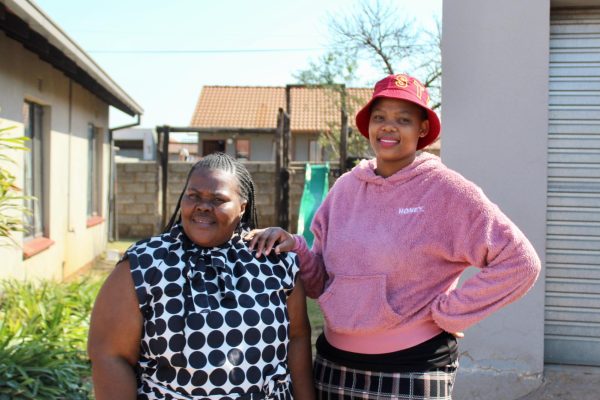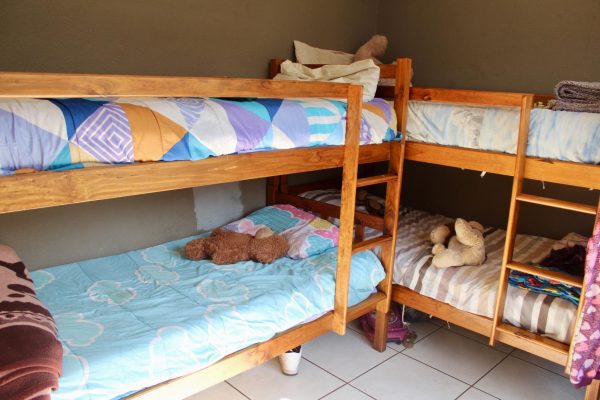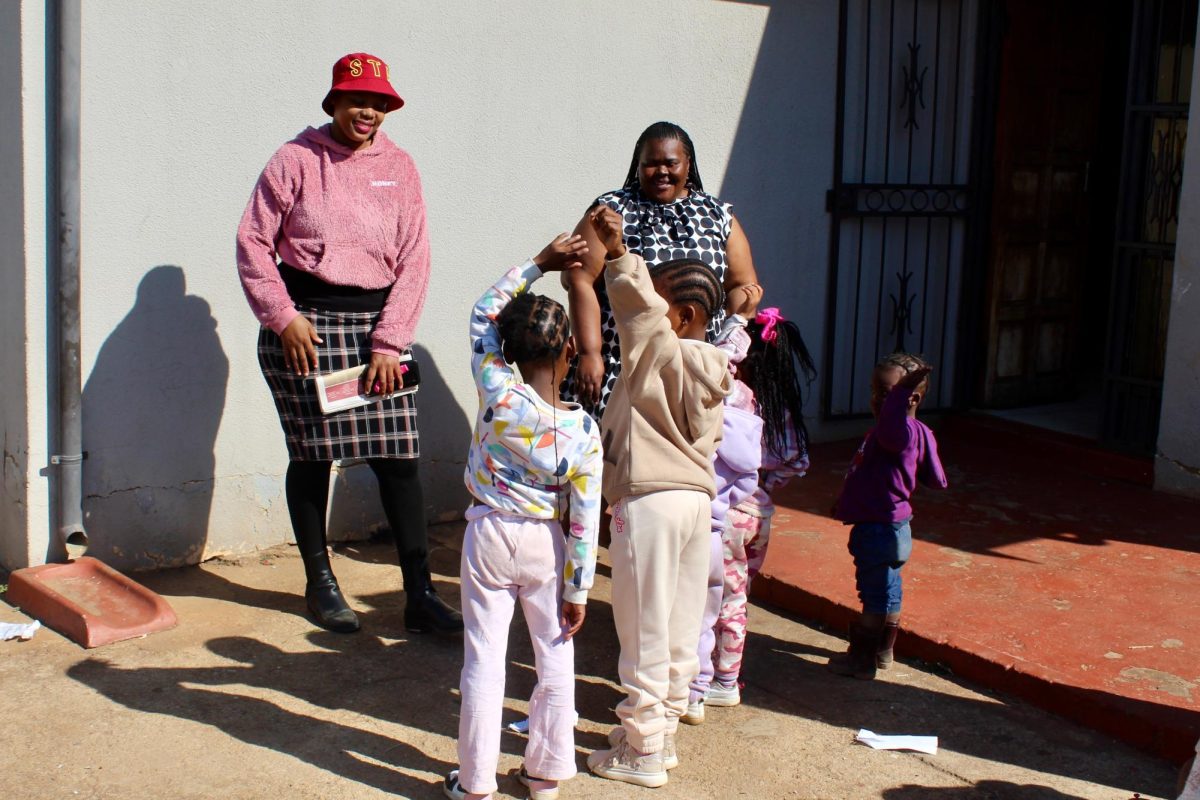Vosloorus, South Africa – Khethiwe Mtshali’s home looks like any house filled with children: school portraits positioned on counters, My Little Pony toys atop the TV, well-adored teddy bears nestled on each of the three bunk beds in the house and a pink baby bottle in the middle of Mtshali’s own colorful bedspread.
But the children in Mtshali’s house arrived there because they were orphaned, abandoned or removed from their biological families. Mtshali is their foster mother. In addition to a biological adult son, who does not live in the home, Mtshali currently cares for four children — ages 2, 4, 8 and 18 — and will soon receive two more.
“The relationship is good,” said Mtshali as a group of children, her own and others from the neighborhood, crowded around her knees. “We are connecting. We respect each other.”
Mtshali is employed by LIV Thokomala, a community-based foster organization focused on providing vulnerable children with holistic family care. Under LIV Thokomala’s foster program, which is headquartered in Durban, children identified by various child welfare organizations are placed with foster mothers in one of the 11 homes LIV Thokomala operates throughout South Africa. Four are in townships just outside of Johannesburg.
Private foster homes are not uncommon in South Africa. There are over 300,000 children currently in foster care throughout the country. By comparison, in the U.S., there are about 400,000 children in foster settings despite having a population five times larger than South Africa.
LIV Thokomala differs from many South African foster organizations in its mission to provide support for children past the age of 18, according to Natasha Saminathan, a social work supervisor for LIV Thokomala.
Under the South African Children’s Act, a child is considered an adult at 18. Once a child reaches this age, they are often asked to leave the foster care system. But LIV Thokomala operates differently.
“With LIV Thokomala, we don’t force a child to leave the home at 18,” Saminathan said. “We continue caring for them and try to get the child into a skills development program or some study program. When the child is ready to leave and able to care for themselves, then they leave. The goal is really to provide the child a forever home and meet all their basic needs.”
This ongoing support can be seen in Mtshali’s home, where Mtshali’s 18-year-old foster daughter receives guidance on applying for further education from Precious Maleka, a social worker at LIV Thokomala who is responsible for the four Johannesburg-area foster homes.
“I’ve already started the process of assisting her with the application so that she can further her studies when she completes grade 12,” Maleka said.
Mtshali’s foster daughter said Mtshali’s motherly love can be felt throughout their home. She wants to become a social worker after she graduates from high school.
LIV Thokomala also differs from many foster care organizations because it does not receive government funding. Rather, LIV Thokomala is self-sustainable, with the exception of government foster care grants given to the children that Mtshali collects for their care.
“Our founders of LIV are big on self sustainability, so they have opened up little business ventures where all of the profits come to supporting the children,” Saminathan said. “We have second hand stores and coffee shops that try and generate an income every month.”
Additionally, LIV Thokomala requests funds from various companies and businesses. All funds, regardless of origin, are used to pay for clothing, bedding, school supplies, toiletries and other necessities.

LIV Thokomala’s focus has shifted over the years. When it was founded in 2002, the organization’s main priority was caring for children orphaned and affected by HIV/AIDS. Over the years, Saminathan said, the organization realized that a broader crisis lies with abandoned and vulnerable children, even if they’re not afflicted with HIV/AIDS.
Saminathan said LIV Thokomala’s foster care system attempts to give these children a sense of normalcy.
“The children have regular lives,” Saminathan said. “They attend your local school, they shop in your local shopping centers, they use the local transport, like your buses and taxis, use the local library, everything, as we do in our own communities. That’s the life we try to create for the kids: as normal as possible.”
Stability also comes with consistency. Saminathan said the children live with their foster mothers 24/7, with the only exception being when a foster mother takes a day or weekend’s leave and a temporary relief mother is brought in.
“That model is basically an attempt to create stability within the home and to create the family setting that we want,” Saminathan said. “We want the child, when they come to LIV Thokomala, [to] feel like, ‘This is my home. This is a place that I belong. This is my foster mother. These are my foster siblings.’ Just so that emotionally, they can feel secure and stable.”
In Mtshali’s home, this security and stability manifests in many forms. Mtshali provides meals and attends to her foster childrens’ basic needs like clothing and shelter. But she also is a source of emotional support for her foster children.
“We share, we talk, if we have a problem,” Mtshali said. “They talk with me, I give that support.”
Still, this isn’t always simple as the foster children LIV Thokomala works with often have experienced trauma.
“You find children who are having problems,” Mtshali said. “They don’t want to talk sometimes. Before, their families were having problems, maybe they were neglecting them. It’s not easy to engage them. But when times go on, the social workers help us to get psychologists so that you will build relationships with your children.”

In addition to helping children find a “forever home,” LIV Thokomala actively supports family reunification when possible. Maleka said this consists of supervised family visits throughout the duration of foster care.
“If they want to be out there and go to their families, we don’t want to be the stumbling block for them,” Maleka said. “We will still support them until they are in a space where they can say, ‘I’m independent enough.’”
While reunification is a goal, Maleka said she wants the children to know they have a family with their foster mothers and siblings.
“We don’t want the children to lose contact with the family, but we also want them to grow up knowing that … they still have a family [with us],” Maleka said.
This familial love illuminates Mtshali’s face as she talks about the children who call her mom.
“I take them as my own children,” Mtshali said, scooping one of the children into her arms and cradling her on her lap. “I don’t see different.”















































